Curriculum
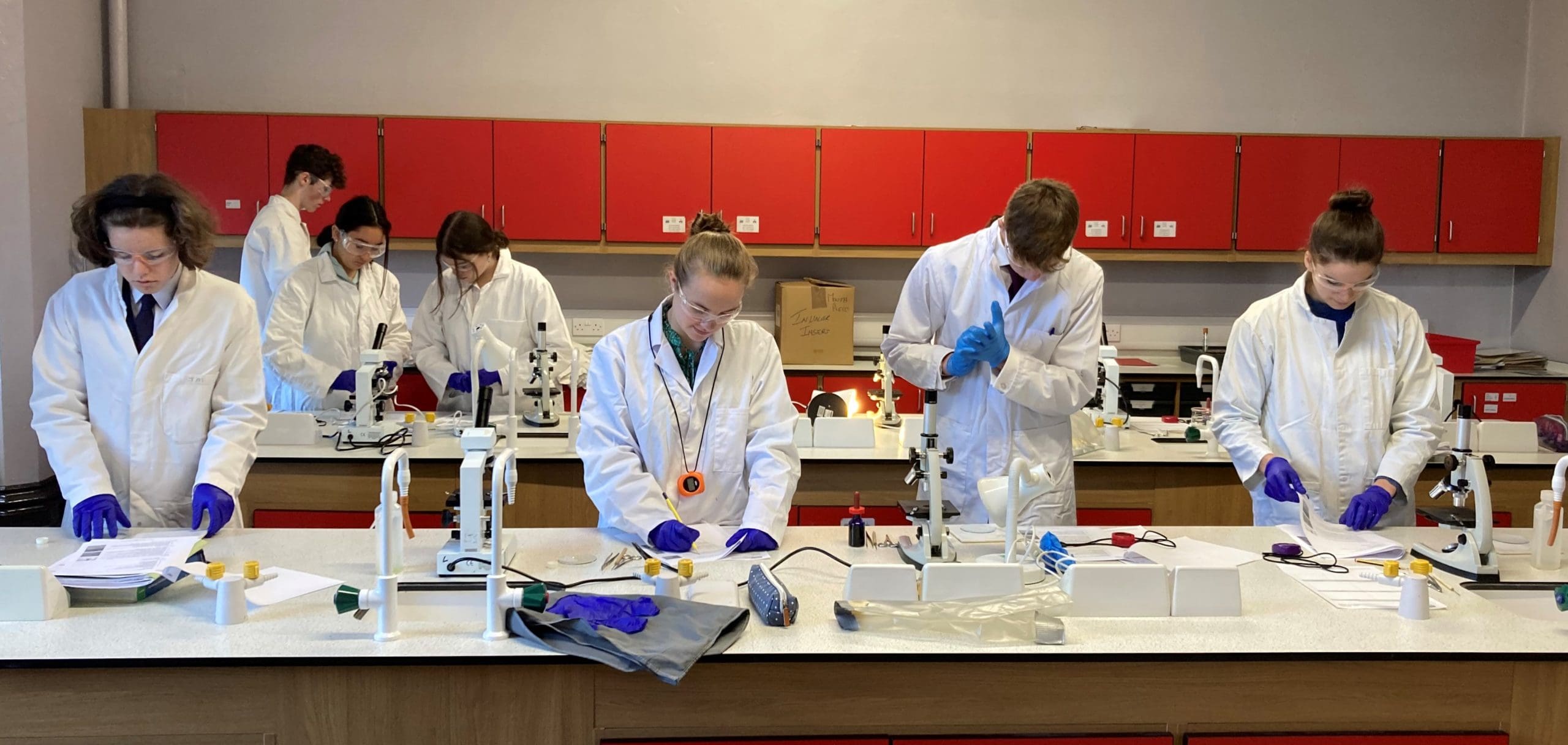
Senior Option Subjects
In English lessons pupils will encounter a range of literature and different texts from a variety of genres and forms, while learning to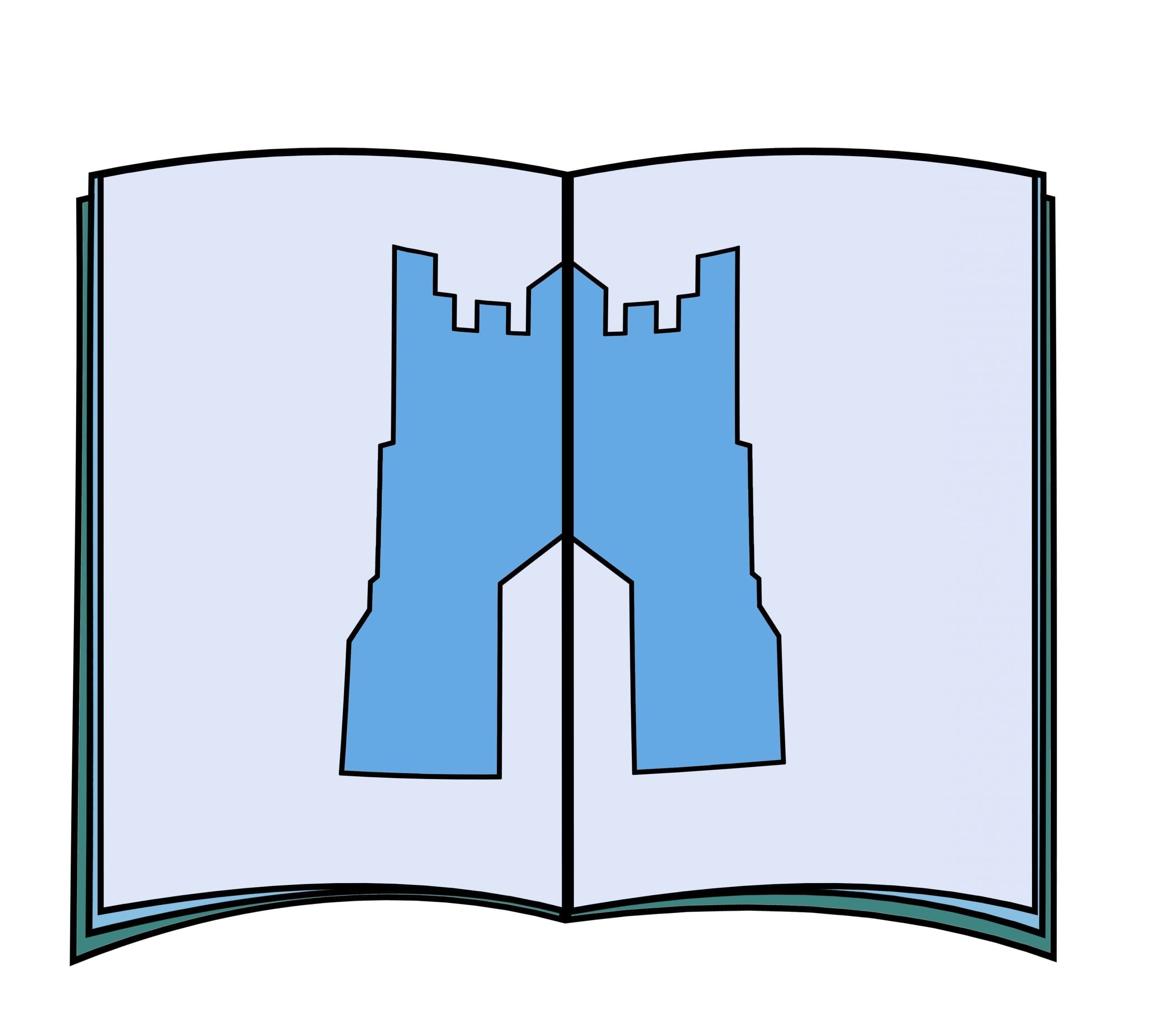 develop their skills as sensitive, analytical readers. Alongside this, pupils learn to express their own ideas and attitudes in sophisticated written work, in preparation for examination success within and beyond the English curriculum. Accurate and expressive use of spoken English is also championed within the School.
develop their skills as sensitive, analytical readers. Alongside this, pupils learn to express their own ideas and attitudes in sophisticated written work, in preparation for examination success within and beyond the English curriculum. Accurate and expressive use of spoken English is also championed within the School.
English lessons are engaging and dynamic, allowing pupils to experience a range of different learning styles. Teachers of English set high expectations for their classes and ensure all are properly supported to achieve their very best. This determination for excellence extends beyond the classroom into a wide a range of extra-curricular activities offered by the department, including public speaking, creative writing competitions, reading challenges and study trips, as well as curriculum-related theatre trips.
All pupils are encouraged to make use of the impressive library, driven by our desire to find the ‘right book to spark each child’s imagination’. Each KS3 unit of work is themed and incorporates all aspects of the English framework strands (Speaking and Listening, Reading, Writing, Language) from a text-based perspective. This enables learners to build on the skills, knowledge and understanding acquired at Key Stage 2 and prepare pupils for the increasingly challenging programme at GCSE level.
Forms One to Three have, as part of their English studies, a dedicated Library lesson once a week to support and extend their studies of key texts and topics.
Building on their English education at KS3, pupils will continue to develop and perfect their skills by reading and understanding texts from a range of genres and time periods, making links and connections between texts and social, historical and literary contexts, and exploring and analysing the impact of writers’ language choices. They will also learn to identify and apply the key techniques used in creative, descriptive, argumentative and persuasive writing The department currently follows the AQA specifications for English Language and English Literature, which are assessed entirely through terminal written examinations. The vast majority of pupils will be entered for both of these separate GCSE subjects. Pupils will develop their skills of oral and written communication, responding to the ideas of others as well as articulating their own creative, persuasive and discursive opinions. In addition, they will continue to learn to react to film, media and theatre in a positive and active manner. The GCSE includes a separate test for Speaking and Listening which is internally assessed and externally moderated. All pupils are required to partake in this valuable experience as part of their GCSE.
For the first three years so studying Maths in the Senior School, we follow the Collins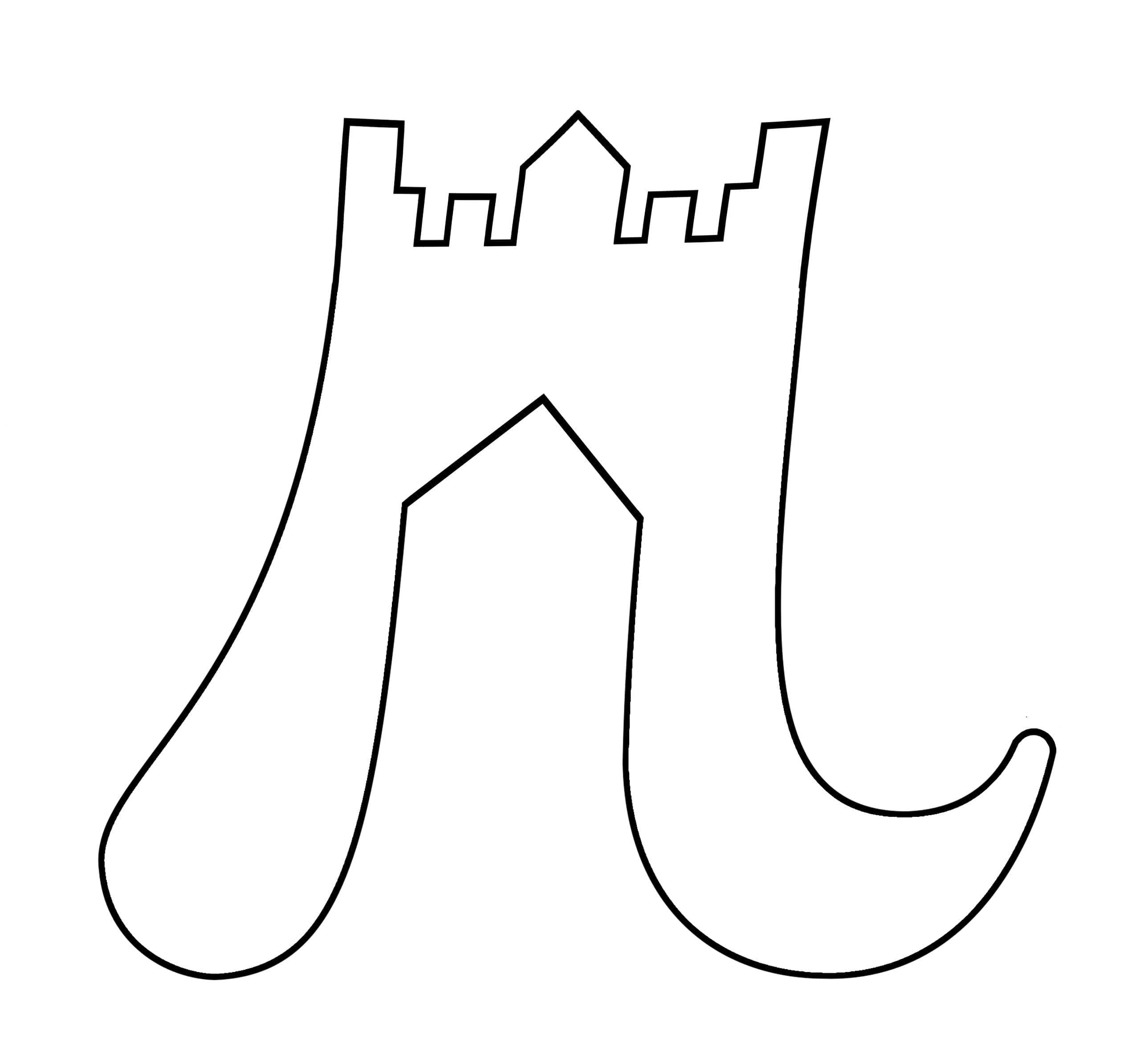 Maths Frameworking course. In addition to this, we aim to develop mathematical thinking by looking at how Maths is used in the real world. Maths is everywhere, from a simple shopping trip looking at best buys up to engineering skills such as creating a perfect right angle using Pythagoras’ Theorem. Our aim is to show how Maths is a tool that is needed by all of us and used every day. Confidence in dealing with problems is a modern skill which we aim to develop immediately a pupil joins us in Form 1.
Maths Frameworking course. In addition to this, we aim to develop mathematical thinking by looking at how Maths is used in the real world. Maths is everywhere, from a simple shopping trip looking at best buys up to engineering skills such as creating a perfect right angle using Pythagoras’ Theorem. Our aim is to show how Maths is a tool that is needed by all of us and used every day. Confidence in dealing with problems is a modern skill which we aim to develop immediately a pupil joins us in Form 1.
At GCSE, Maths is taught in streamed sets and every pupil follows the Edexcel International GCSE specification A. While we aim for most pupils to study the Higher tier, we do also recommend that some follow the Foundation tier depending on what is right for the individual. We also offer the chance for the most able pupils to study Edexcel GCSE Statistics in addition to Maths. The modern world is data driven and and understanding of how to collect, represent and interpret data is a must for modern life.
Science
In Forms 1 and 2 pupils study topics from the KS3 National Curriculum. At the start of Form 3 all students embark on a common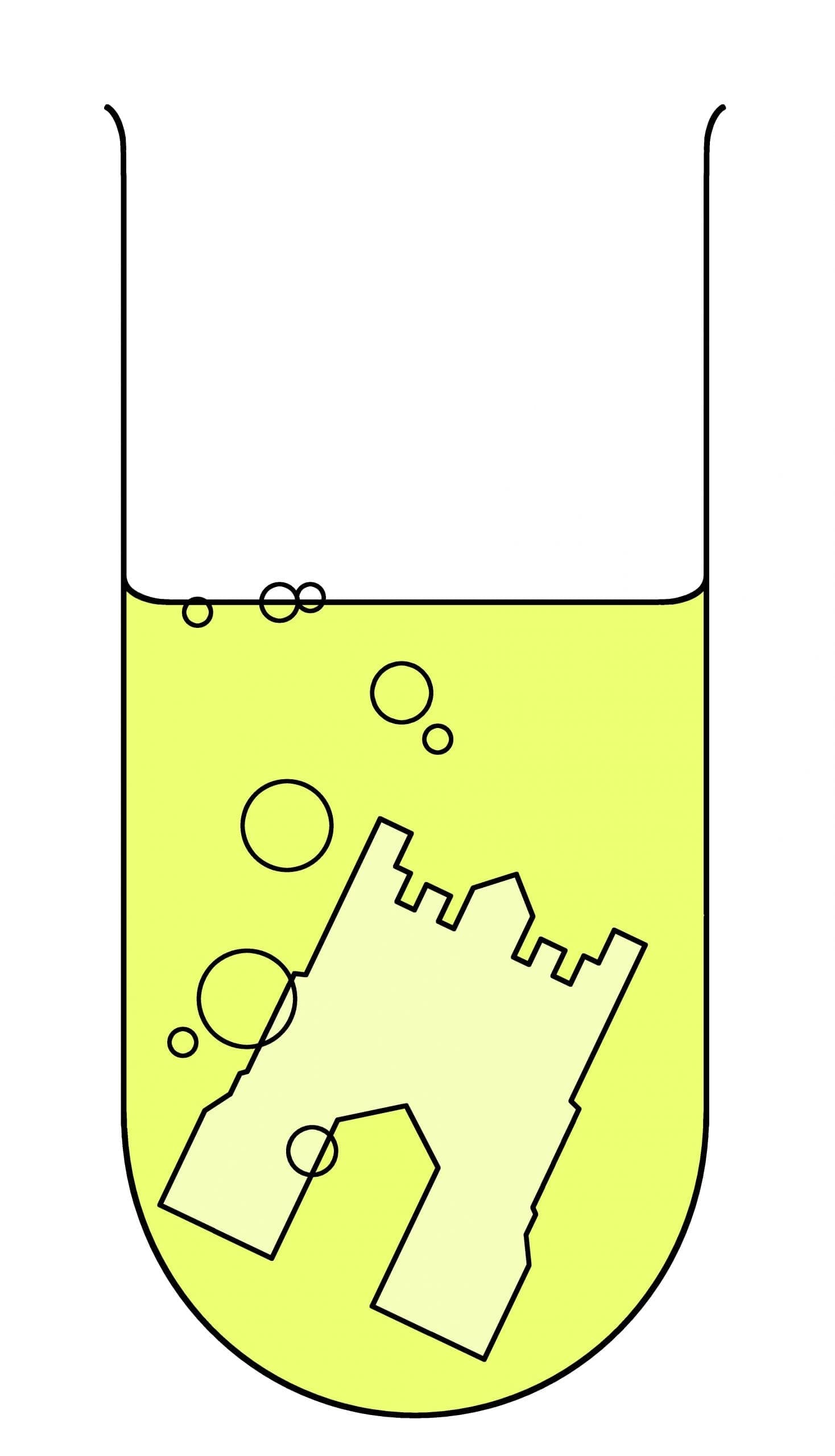 programme of science studies. This will lead to either two or three GCSEs; Combined Science or Separate Biology, Chemistry and Physics. At GCSE and A Level the sciences are taught separately by subject specialists. At A Level the department offers Biology, Chemistry and Physics.
programme of science studies. This will lead to either two or three GCSEs; Combined Science or Separate Biology, Chemistry and Physics. At GCSE and A Level the sciences are taught separately by subject specialists. At A Level the department offers Biology, Chemistry and Physics.
Biology
Biology is an extremely important subject for providing a necessary grounding for entry into A Level courses and beyond in many higher education courses. At A Level, Biology is often paired with other non-science subjects such as English or Business/Economics where there is a need for scientific rigour as well as the ability to clearly communicate findings and conclusions. It is essential for all biology and life science courses as well as related subjects including psychology, nursing, medicine and veterinary courses. The AQA courses we offer at A Level and GCSE cover a wide range of topics from cells, human physiology to photosynthesis and a section focused on the ever more important area of the biology of DNA and its interactions and the outcomes that follow. To support the theory and to encourage pupils to think like practical biologists, a very wide range of practical work takes place in the labs, the school grounds and locally, allowing pupils to leave with a wide range of experimental know-how.
Chemistry
Chemistry attempts to answer the big question “What is our world made of?” It is the study of the composition, structure and properties of matter as well as the changes it undergoes during chemical reactions. It is the study of substances, what they are made of, how they interact and the role they play in living things. It is the study of all materials and is vital to every aspect of your life.
Studying an A Level Chemistry related degree at university gives you all sorts of exciting career options, for example doctor, vet, analytical chemist, chemical engineer, clinical biochemist, pharmacologist or research scientist. The skills of numeracy, problem solving and communication are an integral part of Chemistry and therefore an A Level in Chemistry could also lead to careers in finance and law.
Physics
Physics is the study of matter and energy. It is the study of their interaction at the largest and smallest scales from inside the nucleus of atoms to black holes, galaxies and the universe. At GCSE, we start to examine some of the fundamental principles that explain the behaviour of matter and we study how energy is conserved, transformed and used and also how we produce the energy that we need from different sources such as wind or nuclear power stations. We look at the behaviour of electrons in electrical circuits, and how their behaviour is controlled, measured and put to practical use. We consider the behaviour of solids, liquids and gasses as well as radioactivity in these materials. The practical results of forces and pressures, waves and magnets are studied, with particular attention to the properties of waves on the electromagnetic spectrum, such as radio waves, microwaves, light and X-rays. All of this is underpinned by the use of mathematics and fundamental principles alongside practical experiments and real-life experience.
The aim of the PSHE curriculum at Longridge Towers is to produce pupils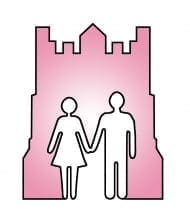 who are equipped with life skills which will allow them to be fully-participating members of a fast changing British and global society. Using the JIGSAW curriculum, our pupils will develop a sense of self-worth and confidence to be the best version of themselves. Problem solving is an important aspect of PSHE. This may be in the form of working collaboratively in a group or pair to produce possible responses to scenarios which pupils might encounter in life, or reflecting on how they will use their acquired knowledge to make positive choices in their own lives as they move though school.They will mature into individuals who can think independently and critically, and have the knowledge to make informed choices around their physical, mental, sexual, emotional and economic well-being. The spiral nature of the curriculum allows them to revisit areas and explore them at an age appropriate level, and provides our pupils with opportunities to reflect on and clarify their own values and attitudes, allowing them to engage in a meaningful way with a world where values and attitudes may be complex and at times in direct conflict with their own. The RSE elements of the curriculum allows our students to understand appropriate behaviours which will help them to develop and maintain healthy relationships.
who are equipped with life skills which will allow them to be fully-participating members of a fast changing British and global society. Using the JIGSAW curriculum, our pupils will develop a sense of self-worth and confidence to be the best version of themselves. Problem solving is an important aspect of PSHE. This may be in the form of working collaboratively in a group or pair to produce possible responses to scenarios which pupils might encounter in life, or reflecting on how they will use their acquired knowledge to make positive choices in their own lives as they move though school.They will mature into individuals who can think independently and critically, and have the knowledge to make informed choices around their physical, mental, sexual, emotional and economic well-being. The spiral nature of the curriculum allows them to revisit areas and explore them at an age appropriate level, and provides our pupils with opportunities to reflect on and clarify their own values and attitudes, allowing them to engage in a meaningful way with a world where values and attitudes may be complex and at times in direct conflict with their own. The RSE elements of the curriculum allows our students to understand appropriate behaviours which will help them to develop and maintain healthy relationships.
Careers education is also a focus within PSHE, with work experience taking place in Form 4 – something which our pupils value as they feel they return with an understanding of the reality of the working week!
In the Sixth Form, the focus in PSHE moves into preparation for life after Longridge, be it university, college, an apprenticeship or a step into the competitive world of work. Topics such as budgeting and finance, time management, political systems and voting, life skills, mental health and well-being are covered.
Schemes of Work:
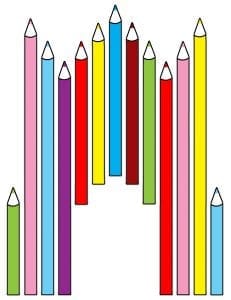 At Key Stage 3, pupils are given the opportunity to explore the elements of art, expressing themselves in a variety of media while learning about line, value, pattern, colour and composition. We also look at a wide variety of contemporary and historical practitioners from around the world to learn about techniques and to find inspiration. Art at Key Stage 3 affords pupils the opportunity to develop important cross-curricular skills such as planning, experimentation, evaluation, and reflective thinking.
At Key Stage 3, pupils are given the opportunity to explore the elements of art, expressing themselves in a variety of media while learning about line, value, pattern, colour and composition. We also look at a wide variety of contemporary and historical practitioners from around the world to learn about techniques and to find inspiration. Art at Key Stage 3 affords pupils the opportunity to develop important cross-curricular skills such as planning, experimentation, evaluation, and reflective thinking.
At GCSE, pupils who choose Art will follow the AQA Art and Design specification. Over the two-year course, pupils will produce substantial portfolios of original work in response to thematic stimulus. This is worth 60% of their final grade. The course culminates with timed exam work in response to prompts released by AQA in January of Form 5. The exam requires ten hours of work and is worth 40% of the GCSE. Art in Forms 4 and 5 Art builds upon the skills learned at Key Stage 3. Pupils will refine and explore technical skills while engaging in personal and independent study, exploring their preferred interpretations of themed projects and investigating the work of artists they find inspirational. The ability to self-assess, think reflectively on their practice and express their ideas with critical clarity is a crucial skill.
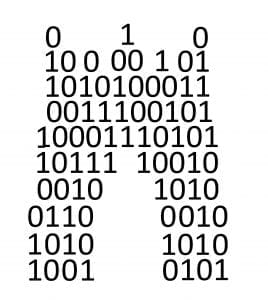 Pupils in Forms 1 to 3 follow a combined Computer Science and Information Technology course. Pupils will be taught how to code and solve problems using computers. They will gain knowledge about what the various parts of a computer system actually do, and how they do it. We acknowledge that Computer Science is an important subject, but feel that useful life skills such as using the office style computer software and gaining confidence in using the cloud will pay dividends. To this effect we follow the Google Applied Digital Skills course to help pupils use the computer software in a realistic situation whilst developing transferable skills. Our pupils will be confident in using Google Apps and Microsoft Office.
Pupils in Forms 1 to 3 follow a combined Computer Science and Information Technology course. Pupils will be taught how to code and solve problems using computers. They will gain knowledge about what the various parts of a computer system actually do, and how they do it. We acknowledge that Computer Science is an important subject, but feel that useful life skills such as using the office style computer software and gaining confidence in using the cloud will pay dividends. To this effect we follow the Google Applied Digital Skills course to help pupils use the computer software in a realistic situation whilst developing transferable skills. Our pupils will be confident in using Google Apps and Microsoft Office.
Pupils may opt to take Computer Science at GCSE level. This will be focused purely towards computing systems, rather than ICT. Pupils will learn about the computing hardware to a more sophisticated degree and they will develop their programming skills in a number of high-level languages.
Computers are everywhere and it is thought that young people of today will probably work with computers in jobs that don’t even currently exist. Whatever career path is taken, it is most likely that a computer will be an essential tool. In addition to our lessons, we always encourage our pupils to apply their skills outside of the classroom. To this end, we have enjoyed success in a number of national robotics and programming competitions.
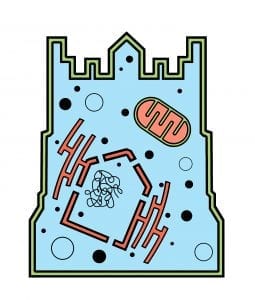 Design Technology courses give young people the skills and abilities to engage positively with the designed and constructed world and to harness the benefits of technology. They learn how products and systems are designed and manufactured, how to be innovative and to make creative use of a variety of resources including digital technologies, to improve the world around them. We have a well-stocked workshop with a variety of tools and pieces of high technology, including several 3-d printers and a laser cutter.
Design Technology courses give young people the skills and abilities to engage positively with the designed and constructed world and to harness the benefits of technology. They learn how products and systems are designed and manufactured, how to be innovative and to make creative use of a variety of resources including digital technologies, to improve the world around them. We have a well-stocked workshop with a variety of tools and pieces of high technology, including several 3-d printers and a laser cutter.
Pupils in Forms 1 to 3 are introduced to the workshop and encouraged to develop their design skills. They are shown how to use bench and machine tools safely and how to measure and mark out their work. They are given the opportunity to apply their numeracy and literacy skills in a real-world environment. They will be given a number of set tasks which are focused towards building skills and confidence. There will also be challenges and individual projects, where they can design and create their own products which fulfil a particular need.
Interested pupils have the opportunity to study Design Technology at GCSE level. Here they will build upon their experiences in the lower years and develop a more in-depth knowledge of theoretical concepts surrounding this subject. The emphasis will be to enhance their design and technical skills and they will complete a major piece of project work as part of their overall GCSE assessment.
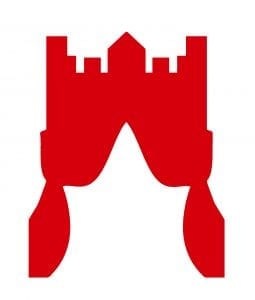 Drama at Longridge provides pupils with the means by which they can create, express and respond to both realistic and imaginative ideas, through the effective use of a visual and verbal vocabulary. It also equips each individual with the skills to handle a variety of real life situations effectively, and with an enhanced understanding for the feelings of others. We facilitate a creative approach to their learning, and enrich this by drawing upon both real and imagined experiences, whilst encouraging all pupils to take an active interest in their own learning.
Drama at Longridge provides pupils with the means by which they can create, express and respond to both realistic and imaginative ideas, through the effective use of a visual and verbal vocabulary. It also equips each individual with the skills to handle a variety of real life situations effectively, and with an enhanced understanding for the feelings of others. We facilitate a creative approach to their learning, and enrich this by drawing upon both real and imagined experiences, whilst encouraging all pupils to take an active interest in their own learning.
Through Drama, pupils are encouraged to develop an inherent sensitivity, responding to challenging experiences, both emotionally and aesthetically. This seeks to enhance their awareness and enjoyment of their own work and that of the group, building important and valued collaborative skills. It also develops their powers of observation and perception, through the use of published texts as well as their own scripted and improvised work. Many pupils thoroughly enjoy this subject area, both in the classroom and as an extracurricular experience, whether or not they take it to examination level.
If pupils do opt to take Drama at ‘exam level’ at Longridge, we offer a GCSE course: AQA Drama, and an A level: AQA Drama & Theatre Studies.
GCSE Drama
The specification engages and encourages pupils to become confident performers, with the skills they need for a bright and successful future, in all ‘walks of life’. Performance is paramount and the course provides ample opportunity for pupils to devise drama, explore texts practically and work on two text-based performances. All who are dedicated to the course can be sure to gather many invaluable skills, both theatrical and transferable, to expand their horizons.
The written exam paper is designed to help all pupils realise their full potential, through a variety of question styles, asking pupils to combine what they’ve learned about how drama is performed with their practical experience – and their imagination!
 At Longridge Towers School, the study of Geography provides pupils with the opportunity to engage with their local area, and understand the key concepts of the world, both in physical terms and human interactions. Geography is a fundamental part of a well-rounded education; it provides pupils with knowledge of global issues on both a physical and human basis. Geography equips students with transferable skills including empathy, communication skills and problem solving, constructing arguments for essay writing and presentation skills; all of which provide advantages for the pupils across many of their other academic subjects. Geography is one of the only subjects where there are continual changes of environments for pupils to investigate, and also they consider the human reactions to these changes.
At Longridge Towers School, the study of Geography provides pupils with the opportunity to engage with their local area, and understand the key concepts of the world, both in physical terms and human interactions. Geography is a fundamental part of a well-rounded education; it provides pupils with knowledge of global issues on both a physical and human basis. Geography equips students with transferable skills including empathy, communication skills and problem solving, constructing arguments for essay writing and presentation skills; all of which provide advantages for the pupils across many of their other academic subjects. Geography is one of the only subjects where there are continual changes of environments for pupils to investigate, and also they consider the human reactions to these changes.
In KS3 Geography, pupils explore the finer details on their local environment, what occurs there and why, and then they move on to geography of the wider world. Additionally, pupils will undertake a variety of tasks including interpreting maps and graphs to enhance their geographical skills.
Pupils in Form 1 will focus solely on the UK and delve into the differing physical landscapes from Land’s End to John O’Groats and explore the features and processes along the way. In addition, pupils will investigate the people of the UK, and the challenges and opportunities they experience with regards to their society and economic standards depending on locality. Moving into Form 2, pupils will study plate tectonics and also discover the diversity of differing nations and areas of the world, specifically focusing on world cities and economic stature. There is a case study of the exciting African continent.
Pupils at GCSE level will follow the AQA specification, experiencing a range of fascinating and captivating lessons looking at natural hazards, the living world and the physical landscapes of the UK, as well as how the population impacts the environment. We study urban issues and challenges, the changing economic world and how we manage our resources. Additionally, pupils will continue to build on skills using maps, statistics, and graphs throughout the GCSE course. There is a compulsory residential field trip, usually in Form 5, when pupils experience practical work which will further enhance their geography skills.
At GCSE, we offer a course which challenges pupils to understand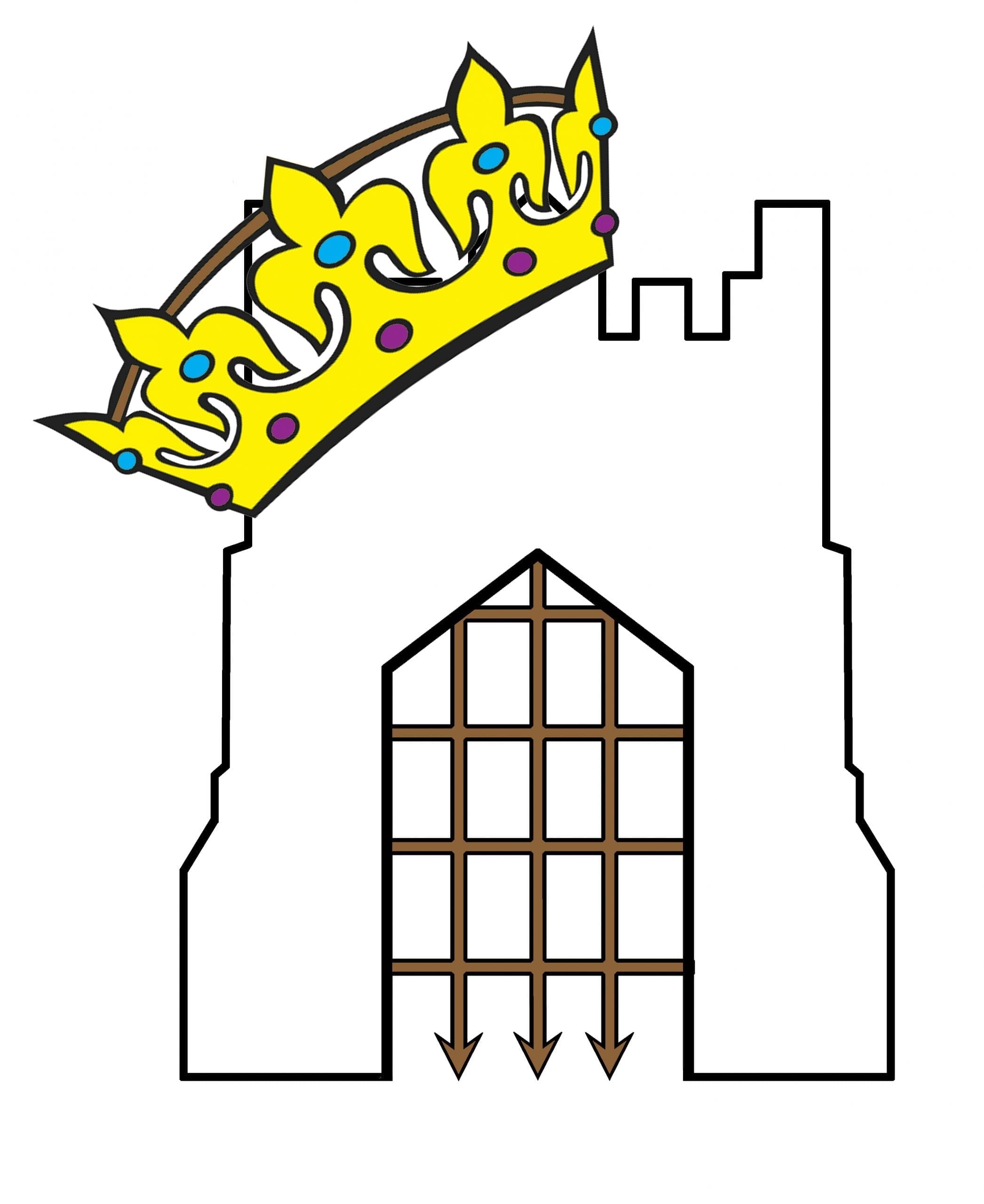 both the modern world and the shaping of British politics and society over the past millennium. In the process of completing this course of study, Longridge pupils will gain an appreciation of vital concepts which affect all of our lives today, as well as mastery over a range of wider skills which will benefit them in their future education and beyond.
both the modern world and the shaping of British politics and society over the past millennium. In the process of completing this course of study, Longridge pupils will gain an appreciation of vital concepts which affect all of our lives today, as well as mastery over a range of wider skills which will benefit them in their future education and beyond.
The four topics which we choose to study as part of the AQA specification are; Elizabethan England, Health and the People, Germany from 1890-1945, and conflict and tension between East and West, 1945-72. These modules cover the history of Britain and the wider world from the Middle Ages to the twentieth century, and ask pupils to apply their skills to a wide variety of political, economic, and social issues. Themes such as the relationship between church and state, democratic legitimacy, the role of class and gender in defining cultural norms, and conflict and diplomacy will be revisited across each topic, allowing pupils to become critical thinkers and perceptive historians. Pupils will be examined on these topics in two examinations at the end of Form 5. They will be equipped with revision guides and additional study materials, both physical and electronic, in order to facilitate the independent work and study which is essential for success in this demanding but rewarding course. It is also recommended that pupils aiming for high outcomes read beyond the lessons as well, and a reading list will be provided to those pupils looking for this additional challenge.
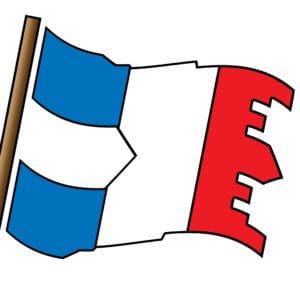 To learn this beautiful and melodious language gives insight into the international language of cooking, fashion, theatre, art, dance and architecture. French is the second most widely studied foreign language after English, and the fifth most widely spoken language in the world. The ability to speak French and English is an advantage on the international job market. French is not a difficult language to learn. It is a language that requires a certain precision but also has great subtlety. It does not take long to be able to communicate effectively in French. French is a very strong subject area at Longridge Towers and our pupils enjoy cultural visits to France to enrich their learning. Many former pupils have studied French at university.
To learn this beautiful and melodious language gives insight into the international language of cooking, fashion, theatre, art, dance and architecture. French is the second most widely studied foreign language after English, and the fifth most widely spoken language in the world. The ability to speak French and English is an advantage on the international job market. French is not a difficult language to learn. It is a language that requires a certain precision but also has great subtlety. It does not take long to be able to communicate effectively in French. French is a very strong subject area at Longridge Towers and our pupils enjoy cultural visits to France to enrich their learning. Many former pupils have studied French at university.
In Form 1, pupils will study a taster of French as part of a nine week language rotation with Spanish and German. In the third term, pupils can opt to continue with French if they wish, along with one of the other languages. They will continue to study these two languages until the end of Key Stage 3. Forms 1 and 2 French are taught with the assistance of the Allez French course, although much of the material is drawn from elsewhere, often using authentic French resources, such as songs, games, videos and online learning platforms, all designed to inspire a love of the French language. The primary focus is on verbal communication. Pupils are encouraged to speak French as much as possible in a comfortable environment with a sympathetic French specialist.
Topics studied in Form 1 include: describing yourself and friends, school, home and animals, free-time, food, local area, clothes, weather, sport and leisure and holidays. In Forms 2 and 3, pupils go on to study: countries, music, TV and film, technology, healthy living, transport, traditions and festivals, house and home, jobs and ambitions. Form 3 pupils study the first two topics in the GCSE course after the first term. This usually comprises: me, my family and friends and technology. All topics are rigorously backed up by the learning of topic-specific vocabulary and relevant grammar including different tenses. These are constantly reinforced with various reading, listening, speaking and writing activities.
GCSE pupils follow the AQA specification. The topics covered over the two years include: free-time, customs and festivals, jobs, careers and future plans, healthy living, the environment, poverty and homelessness, and more. Pupils learn an impressive range of grammar and vocabulary, building up their confidence to become effective communicators both in the spoken and written form. They will also become adept at understanding longer, complex listening passages as well as successfully tackling written tasks drawn from both literature and factual French texts.
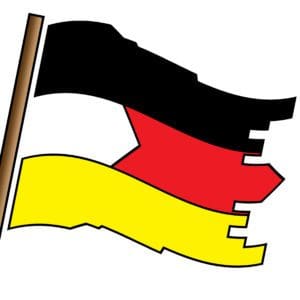 In the first year of Senior School at Longridge, pupils experience a “taster” of German for about twelve weeks to give them an idea of how the language works. Emphasis is given to the spoken language as well as learning about German culture. Pupils learn about our exchange program with Gymnasium im Schloss in Wolfenbuettel, and also about German life and history. We start with basic exchanges about personal life, such as birthdays, pets and families, and then school life is explored.
In the first year of Senior School at Longridge, pupils experience a “taster” of German for about twelve weeks to give them an idea of how the language works. Emphasis is given to the spoken language as well as learning about German culture. Pupils learn about our exchange program with Gymnasium im Schloss in Wolfenbuettel, and also about German life and history. We start with basic exchanges about personal life, such as birthdays, pets and families, and then school life is explored.
In the summer term of Form 1, after sampling all three languages, pupils choose which two languages to continue. Over the next two years pupils study topics including food, television, culture, house and home, clothes, towns, leisure activities, sports, and holidays. This work improves sentence structure and pupils begin to use different tenses, which is vital preparation for GCSE work.
Pupils start GCSE German during Form 3, covering the topics of leisure and culture using the Foundation level AQA GCSE textbook as a basic resource. At the end of Form 3 pupils choose their GCSE options. Study of a foreign language is strongly recommended and some universities require a GCSE in MFL for any course.
The AQA GCSE course provides the opportunity for pupils to work at either Foundation or Higher level, although the final level for the GCSE exam is not decided until after the mock exams in Form 5. The GCSE course consists of twelve units (themes) which are studied in four skill areas (listening, reading, speaking and writing).
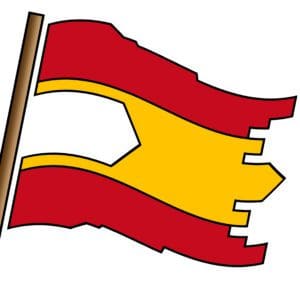 At the start of Form 1, pupils will complete a nine week taster of Spanish and will also be introduced to French and German. In the third term, pupils can opt to continue with Spanish if they wish, along with one of the other languages. They will continue to study these two languages until the end of Key Stage 3. At Longridge Towers School we explore the lifestyle and culture of Spanish speaking countries. By the end of KS3, pupils will be able to communicate in complex sentences using at least three tenses. All four key skills, (speaking, reading, listening and writing) are taught. Topics focus on everyday life: family, leisure activities, school, food and drink and holidays. The importance of communication is enhanced with experiences such as language cafes and pupils may often have Spanish pupils in their class, as we regularly have a contingent of Spanish pupils in Boarding. Pupils from St Michael’s school in Madrid make an annual visit and join our pupils in class, and they all enjoy a range of outdoor activities during a stay at Ford Castle. Such experiences demonstrate the relevance and fun of learning Spanish, and pupils often forge friendships which endure. We have also enjoyed residential visits to Spain when pupils have participated in the San Juan fiestas and experienced the bustling Boqueria market in Barcelona. We begin the GCSE course in the second half of Form 3.
At the start of Form 1, pupils will complete a nine week taster of Spanish and will also be introduced to French and German. In the third term, pupils can opt to continue with Spanish if they wish, along with one of the other languages. They will continue to study these two languages until the end of Key Stage 3. At Longridge Towers School we explore the lifestyle and culture of Spanish speaking countries. By the end of KS3, pupils will be able to communicate in complex sentences using at least three tenses. All four key skills, (speaking, reading, listening and writing) are taught. Topics focus on everyday life: family, leisure activities, school, food and drink and holidays. The importance of communication is enhanced with experiences such as language cafes and pupils may often have Spanish pupils in their class, as we regularly have a contingent of Spanish pupils in Boarding. Pupils from St Michael’s school in Madrid make an annual visit and join our pupils in class, and they all enjoy a range of outdoor activities during a stay at Ford Castle. Such experiences demonstrate the relevance and fun of learning Spanish, and pupils often forge friendships which endure. We have also enjoyed residential visits to Spain when pupils have participated in the San Juan fiestas and experienced the bustling Boqueria market in Barcelona. We begin the GCSE course in the second half of Form 3.
At GCSE pupils follow the AQA specification. The four skills of reading, writing, listening and speaking are taught by engaging with topics such as personal and family relations, leisure, customs and festivals, home town, environmental issues and healthy lifestyles. Culture plays a significant motivational role in language learning and throughout the course we will explore life in the Hispanic world. Pupils will acquire the ability to read and respond to Spanish texts, and will listen to native speakers. They will extend their vocabulary and knowledge of grammar to include a full range of tenses, and role play will enhance speaking skills. Pupils will have access to a comprehensive range of online materials via Kerboodle, and these excellent resources support independent reinforcement and extension.
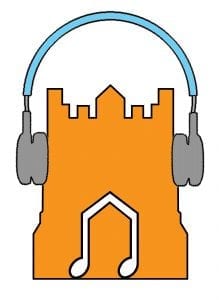 In the Senior School, pupils should develop: the knowledge, understanding and skills needed to communicate effectively as musicians; an awareness of a variety of instruments, styles and approaches to performing and composing; an awareness of music technologies and their use in the creation and presentation of music. We want our pupils to actively engage in performance, both as soloists and in ensembles. They will develop composing skills to organise musical ideas and make use of appropriate resources, and recognise links between the integrated activities of performing, composing and appraising. Pupils will be broadening their musical experience and interests, developing imagination and being creative.
In the Senior School, pupils should develop: the knowledge, understanding and skills needed to communicate effectively as musicians; an awareness of a variety of instruments, styles and approaches to performing and composing; an awareness of music technologies and their use in the creation and presentation of music. We want our pupils to actively engage in performance, both as soloists and in ensembles. They will develop composing skills to organise musical ideas and make use of appropriate resources, and recognise links between the integrated activities of performing, composing and appraising. Pupils will be broadening their musical experience and interests, developing imagination and being creative.
At GCSE the three strands of musical study continue. Listening to music is divided into four areas of study: Classical Western Music from 1650 to 1910, Popular Music (including musicals, rock, film and game music), Traditional Music (including blues, Latin American, African and Caribbean fusion, and contemporary British folk), and Western Classical Music since 1910. There is a selection of set works to be studied from these genres. Pupils are required to create and produce recordings of two compositions, along with a musical score and an explanation of their musical intention, and they also perform as a soloist and as part of an ensemble.
In September 2022, we have introduced Outdoor Learning to our curriculum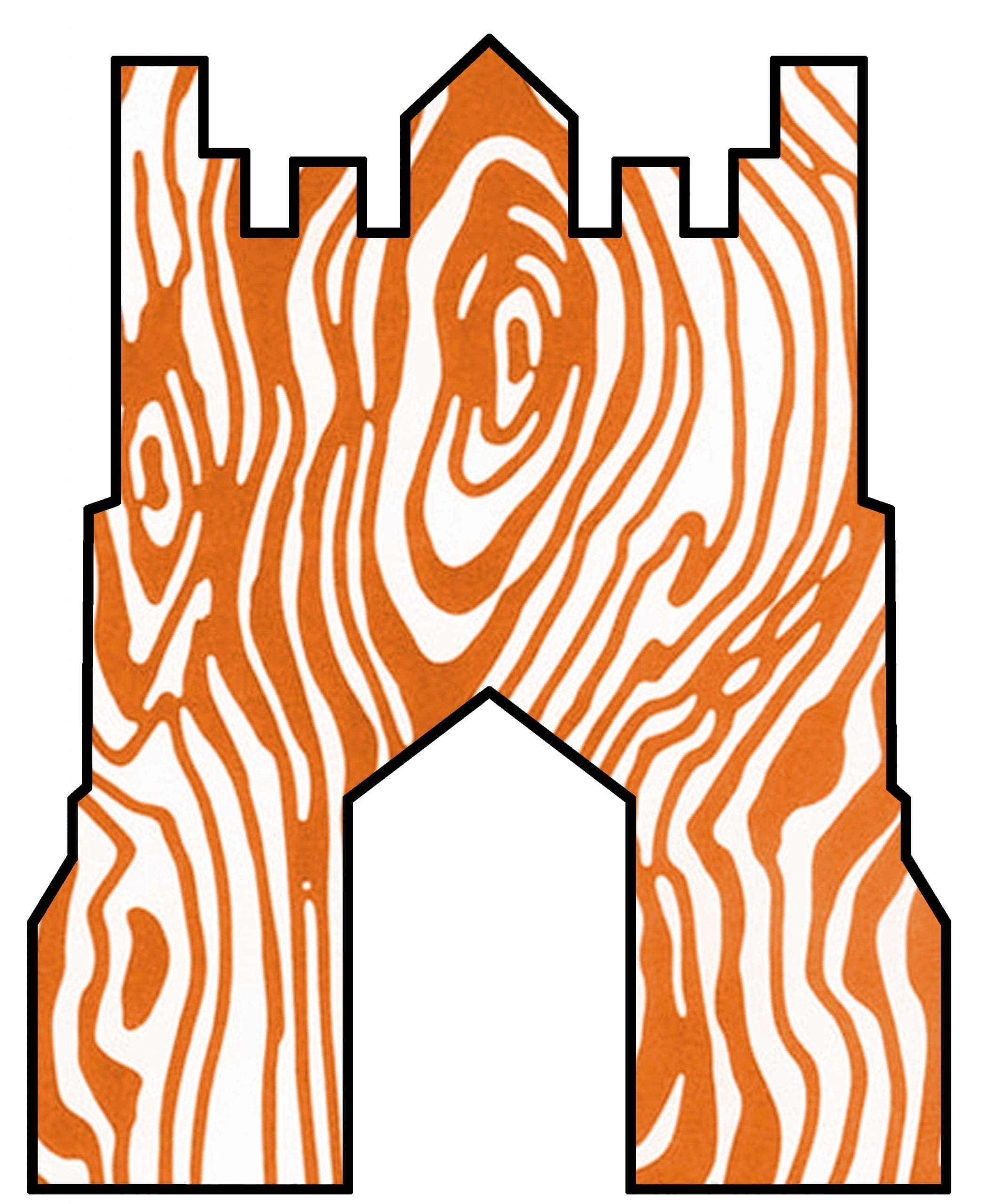 for Forms 1 to 3.
for Forms 1 to 3.
Outdoor learning is about creating the richest, most varied and stimulating environment to educate our young people.
It’s about play and the development of social, physical, emotional, and cognitive skills. And a means of enriching the experiences of every aspect of learning from Early Years through to Senior School and beyond.
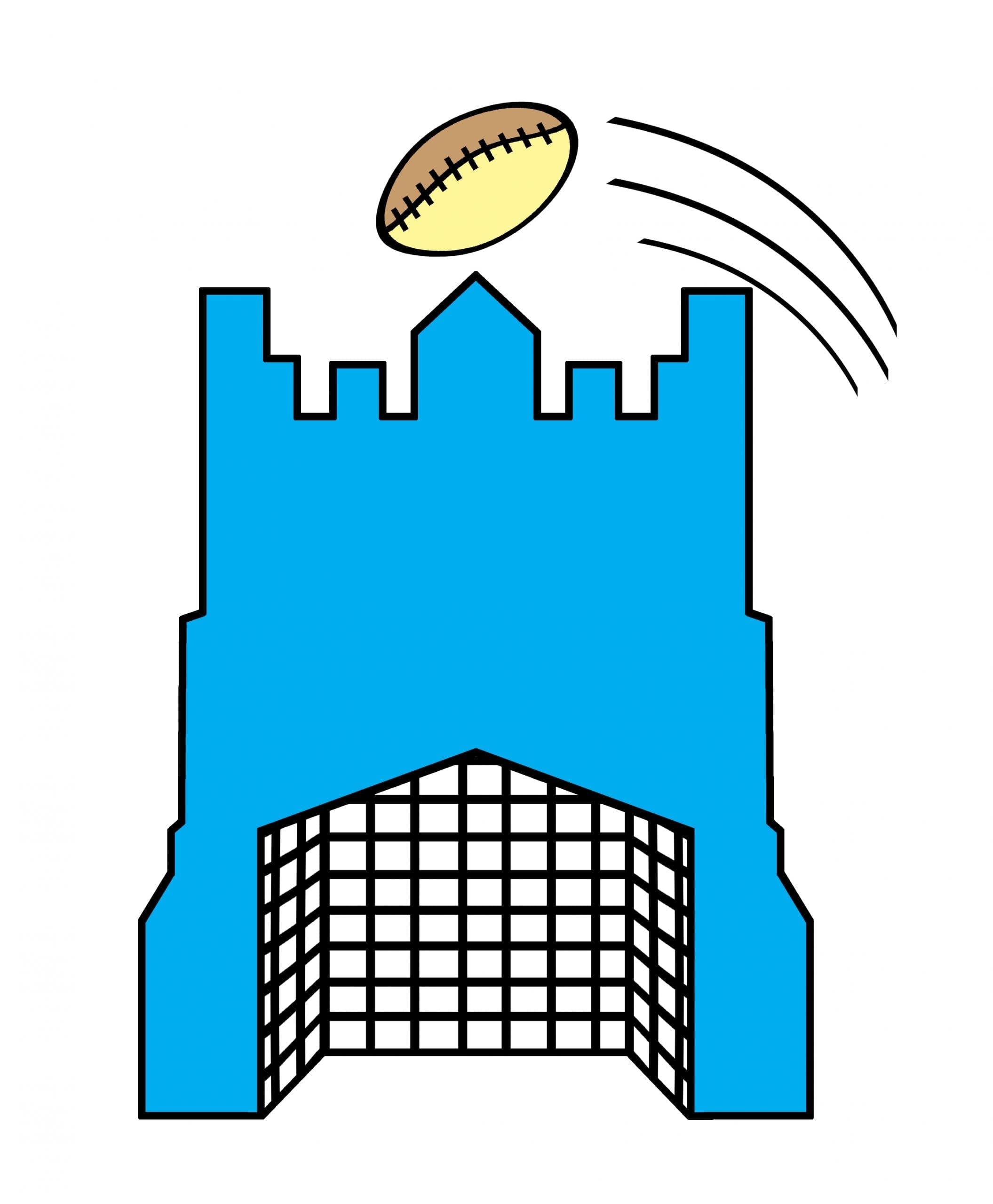 At Longridge Towers School, Physical Education and Sport play a pivotal role in pupil growth and progression, directly feeding into the ethos and vision of the school.
At Longridge Towers School, Physical Education and Sport play a pivotal role in pupil growth and progression, directly feeding into the ethos and vision of the school.
PE and Games
Pupils attend three lessons across the week, with a single PE lesson and a Games afternoon. We cover an extensive curriculum. Activities range from team sports such as rugby, football, hockey and netball; to individual sports such as athletics, badminton, tennis and swimming in Form 1 and 2.
It is our intention to empower pupils by allowing them to make choices guided by their passions at interests. Although we encourage all pupils to be competitive, we fully recognise that many are driven by a journey towards fitness and, or skill development. Activity choices, groupings and teaching episodes are modified in accordance with the desired outcomes of the group. As part of a of our programmes, we seek to equip pupils with the knowledge and understanding of how to progress in specific areas of performance.
Fixtures
Our fixtures calendar is plentiful and structured to offer three ‘seasons’ in one academic year. Our day is structured to allow us to receive teams, as well as travel extensively on both sides of the border. All without significant impact on the academic curriculum. There is scope for every pupil to access competitive opportunities both within school, through our inter-house system, as well as externally via the many local and national events we attend. In this past year we have had pupils compete in rugby, football, netball, hockey (boys and girls), cricket, rounders, tennis, biathlon, swimming, equestrian, cross-country and athletics.
- Certified PE
- Led by a team of successful and specialised staff, pupils can choose to study GCSE PE in Form 4 and 5 (Year 10 and 11). They can further their studies with BTEC Sport in the Sixth Form. These courses cover theoretical aspects of sport, such as: biomechanics, physiological responses to exercise and training methods. There is also a practical component to each course.
Additional Qualifications and Opportunities
We offer a range of additional qualification and opportunities to our pupils, these include:
The Duke of Edinburgh’s Award at all levels. Utilising the beautiful and imposing Cheviot Hills, which are on our doorstep, we seek to develop a love for the outdoors from an early age. Our successful Junior Forest School has now extended into the senior curriculum, with Forms 1 to 3 receiving a lesson of outdoor learning each week. The DofE is a natural extension of this.
Coaching and Refereeing Awards. We encourage pupils to participate in these awards, both in their own time and through school. They are then engaged through our enrichment and fixtures calendar to support the activities of other.
House and School Sports Prefects; Team captains. We strongly advocate student leadership at Longridge and give pupils every opportunity and support to develop the skills and qualities required to become successful.
It is our intent that all pupils of Longridge will leave us with the skills, knowledge and desire to continue their participation in physical activity and sport throughout life. We recognise the value of sport in developing healthy and happy people and seek to promote this understanding in the young people with whom we work.
Carpe Diem
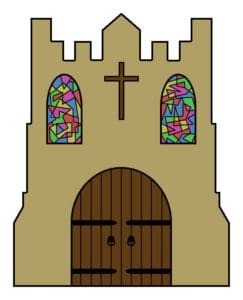 In Religious Studies, we explore what people believe and the difference this makes to how they live, so that pupils can gain the knowledge, understanding and skills needed to handle questions raised by religion and belief, reflecting on their own ideas and ways of living. Pupils are encouraged to develop attitudes of respect, fairness, open mindedness, critical understanding and enquiry in order to enter fully into the study of religions and to learn from that experience.
In Religious Studies, we explore what people believe and the difference this makes to how they live, so that pupils can gain the knowledge, understanding and skills needed to handle questions raised by religion and belief, reflecting on their own ideas and ways of living. Pupils are encouraged to develop attitudes of respect, fairness, open mindedness, critical understanding and enquiry in order to enter fully into the study of religions and to learn from that experience.
Pupils use a variety of skills to explore the subject: theology, philosophy, sociology, psychology and history. They are encouraged to understand the impact and significance of religious and non-religious concepts by looking at the beliefs of living religions and explore how these are understood in diverse ways, by individuals and communities. They examine why people express what they believe in different ways and how this is put into action. Pupils are encouraged to understand the meaning of belief along with the impact on the lives of believers and connections to the world today. The following concepts are used to help develop these aims:
Making sense of belief: What are the beliefs and concepts of living religions and non-religious world views? How and why are these beliefs understood in different ways, by individuals and communities? Why are holy texts used, expressed and interpreted in different ways?
Understanding the impact: How do people express their beliefs in different ways? Why do they do this? How do they put their beliefs into action in the world? What impact does it have?
Making connections: What connections can we make between belief, people’s lives and their understanding of the world? Are there any connections we can make between the ideas studied and our own way of understanding the world? How might these ideas challenge our own thinking?
We follow the Northumberland agreed syllabus for religious education.

Senior / Curriculum
Share This Page